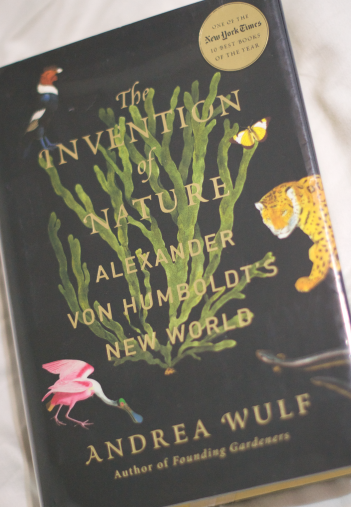 This book is about Alexander Humboldt and all of his big achievements on science as the first interdisciplinary scientist. It depicts him as a man who brought all the detailed measurements, all the data, all the separated observations together to form a concept of nature as a global force, that everything in nature is connected, and that in order to understand nature, we need to understand her in a global picture of separated details, with the art and the heart of the scientist. From human to nature, from stars to volcanoes, from arts to human rights, and more, nothing is out of his interests. Moreover, he is enthusiastic in bringing those knowledge to not only scientists and specialists, but also to normal people, even until his last breath.
This book is about Alexander Humboldt and all of his big achievements on science as the first interdisciplinary scientist. It depicts him as a man who brought all the detailed measurements, all the data, all the separated observations together to form a concept of nature as a global force, that everything in nature is connected, and that in order to understand nature, we need to understand her in a global picture of separated details, with the art and the heart of the scientist. From human to nature, from stars to volcanoes, from arts to human rights, and more, nothing is out of his interests. Moreover, he is enthusiastic in bringing those knowledge to not only scientists and specialists, but also to normal people, even until his last breath.
And the book is so well written in the very similar ways. With full of details and all the small little stories of events, Andrea Wulf pulled everything together to help the readers understand a global picture of Humbolt’s life and his influences. Just by stories over stories, with the detailed background of the history when those happened, the book is so clear and enjoyable. Just this paragraph, she focuses on telling vividly a place where the characters were, the next one, she would zoom out to tell the relationship of it to the general picture of the characters’ whole lives, and what Humboldt had achieved. The book brings the concepts and inventions of science and the amazing life of the hero behind those achievements to normal people.
Humboldt is the man who had influenced so many generations and generations of not only scientists in the world, but also lives of many normal people. He has traveled to the most crucial and magnificent places in the world, meeting all the most important people in the world during his life time. His life is incredible and so adventurous, just like a hero.
I have learned so much from the book, not only about history, but also about religion, altitude to life, and most importantly, about science and how it should be done. Some important things in science are: The freely exchange ideas, the important of conveying the ideas, and spreading …, this in turn comes to the connections between art and science, between inner world and outside world, between the imaginations and emotions of the scientist and the data, the measurements that he performs.
And I would like to end with a note about a book translation of Laplace’s book The mechanism of the Heavens from Mary Somerville to read, a name of a place in Paris The Jardin des Plante to visit, if I have chances in the future; and a quote from Humboldt when he departed on his historical journey to South America:
Man needs to strive for `the good and the great, the rest depends on destiny.’



